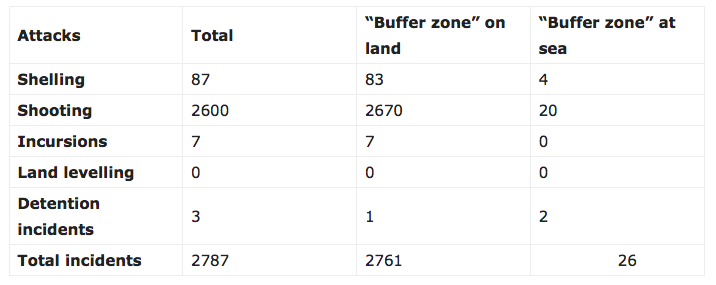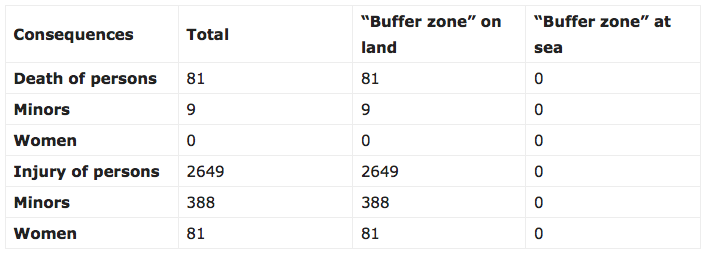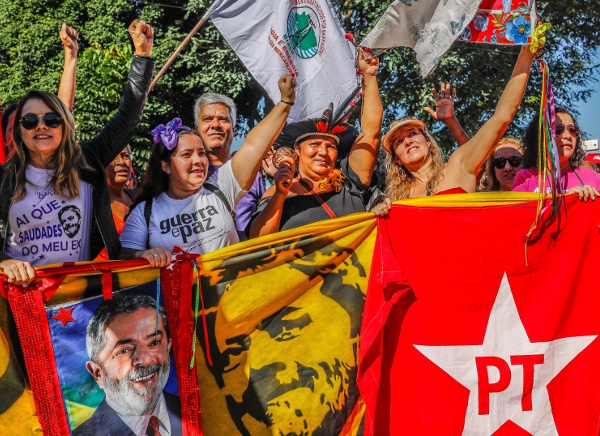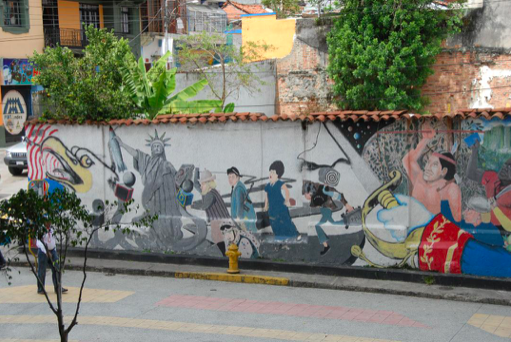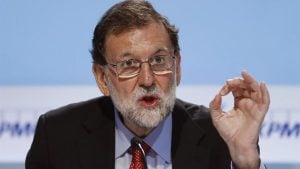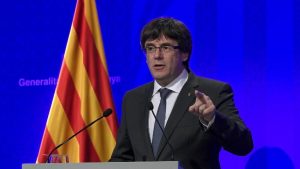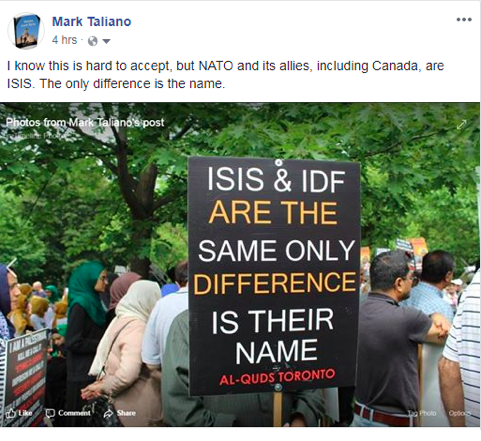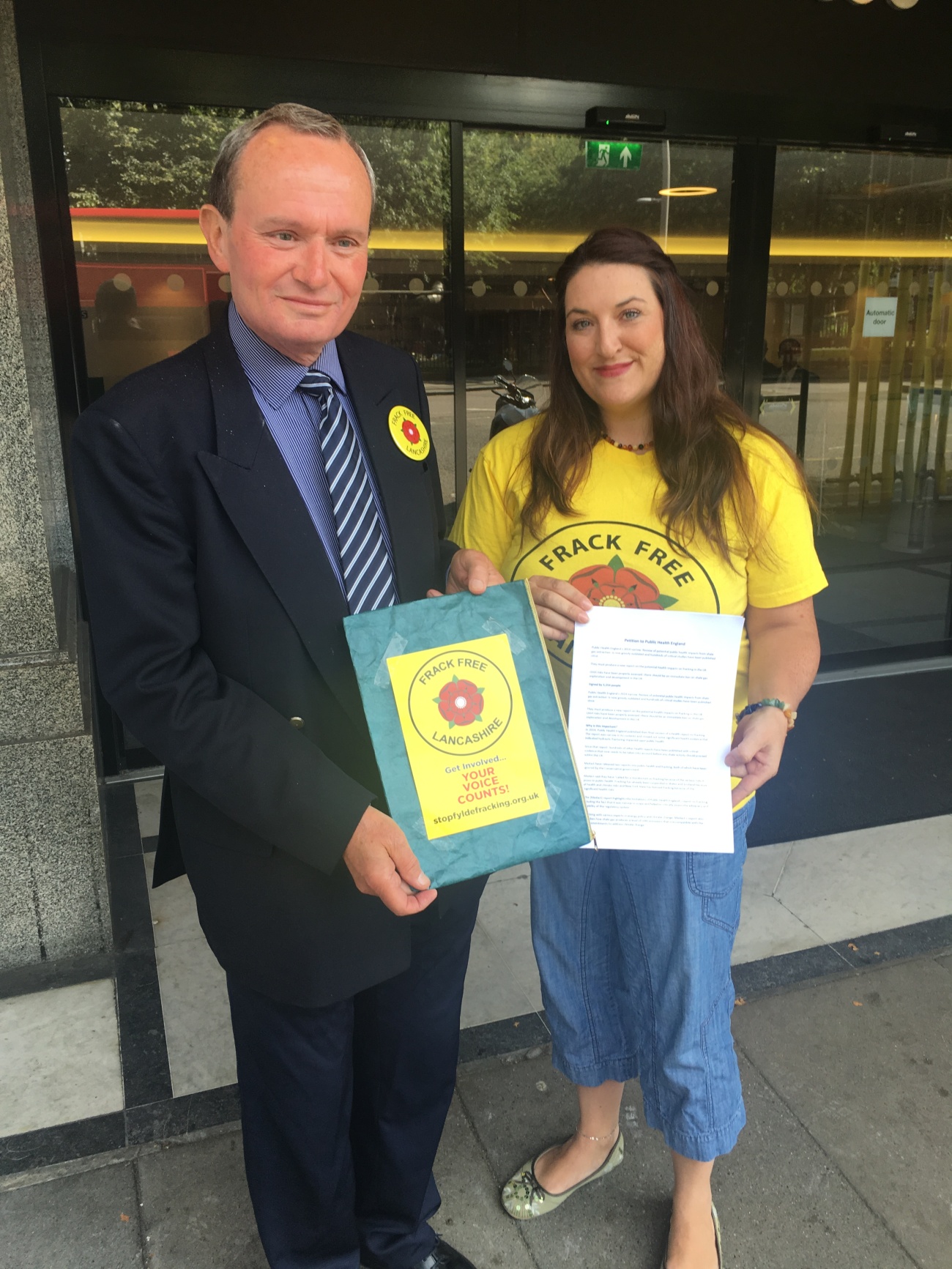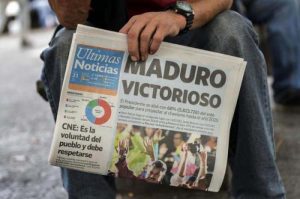‘Every Bullet Has a Precise Address’ – Another Israeli Journalist Justifies the Massacre
June 14th, 2018 by Jonathan Ofir
Featured image: Dan Margalit
This logic has been uttered by a prominent Israeli journalist: Mass shootings of Palestinians have saved their lives. Reporting from the sniper positions near the Gaza fence, Dan Margalit writes in his Hebrew-only Haaretz opinion (Saturday):
From this position, the events looked a bit different than from the Karni crossing near Nahal Oz. Now I am convinced, more than at the beginning of the fighting about 10 weeks ago, that the massive shooting at the beginning of the battles [sic] has saved many Palestinian lives, and of course, first and foremost, lives of Israelis.”
And just how does he get to the logic, that mass shooting of Palestinians is good for them (and of course, first and foremost for us, and despite the fact that no real “battles” have really occurred in these demonstrations)? Margalit elucidates:
“It is necessary to understand the tactic: The Palestinians raise a pillar of smoke in hope to cause the soldiers breathing difficulty. Under the cover of smoke and while the soldiers are busy defending themselves from it, the Palestinians hope to breach the fence, bypass the sniper positions, and to insert in to Israeli territory terrorists and children and handicapped. Breach of the fence and the setting up of a temporary Palestinian outpost upon Israeli soil within Green Line (pre-1967) territory would have caused an increased shooting in order to expel them and increased the number of killed. Perhaps the Hamas leadership is interested in this, but not the protesters. Have they despaired? It is unclear.”
So this is the scare scenario, which Margalit assumes: “terrorists and children and handicapped” would set up a temporary outpost. And what would happen then? We would have to massacre them, of course, like we’ve regularly done to “infiltrators” since the state was established. And who would want that? Do Palestinians just want to die? Apparently, Margalit even concedes that Palestinians generally don’t want to die. But Hamas wants them to. Hamas wants to use children and handicapped (and don’t forget medics too) as human shields – human cannon fodder – because they know Israeli soldiers can’t help massacring an outpost of Palestinian children and handicapped.
We’ve seen this logic before, the one that says that killing Palestinians is good for Palestinians – in the Shmuel Rosner massacre apologia in the pages of the New York Times.
“I believe Israel’s current policy toward Gaza ultimately benefits not only Israel but also the Palestinians.”
It’s important to note, that Margalit is not a journalistic lightweight, and it is clear that Haaretz is not a lightweight outlet. Margalit’s recent engagement with Haaretz began exactly a year ago, just after he was fired from the Adelson funded Netanyahu-propaganda daily Israel Hayom. Margalit wrote for Israel Hayom since its founding in 2007. He was also chief editor for the centrist daily Maariv for a short period, and is a regular TV host on main Israeli channels. This is all to say, that this kind of commentary is not from an occasional right-wing fringe – it is centrist and central. And it’s in Haaretz – which is generally considered left.
One is perhaps left to assume, that Haaretz would be ashamed to publish such opinion on in its English version – such opinions could scare off liberal readers. But then again, when looking at a recent Margalit opinion in English titled “The Arabs chose to be refugees” (May 24th), one could have the impression that Haaretz hasn’t got that much shame after all. Here, Margalit peddles classical Zionist Hasbara saying that Palestinians chose to flee despite calls from Jewish leaders to stay, and so it’s all on them. In that piece Margalit also cheer leads the ideological assault against the UN refugee agency UNRWA and advocates its dismantling for supposedly perpetuating the Palestinian refugee problem.
Screenshot from Haaretz
But back to Margalit’s Hebrew piece, which is titled “From the position of the snipers, things look different: a visit to the dwindling protests at the border fence.”
Here, Margalit notably accentuates that every shot is fired precisely, “by order of a senior commander, and every bullet has a precise address.”
This message is reminiscent of the IDF tweet from the first day of protests within the Great March of Return (March 30th), where it claimed that
“nothing was carried out uncontrolled; everything was accurate and measured, and we know where every bullet landed.”
That day, 15 Palestinian protesters were killed. The army had immediately removed the tweet, apparently realizing what a damning admission this was. But B’tselem saved the screenshot.
Ali Abunimah in Electronic Intifada:
The army’s deletion of the tweet is hardly surprising. The admission that its killings of demonstrators were premeditated down to the last bullet means it cannot deny responsibility for apparent war crimes, such as the lethal shooting of Abd al-Fattah Abd al-Nabi, 19, as he ran away from the Israel-Gaza boundary fence. Abd al-Nabi was reportedly shot in the head. Video of the slaying, widely shared on social media, shows Abd al-Nabi running alongside two other Palestinians far away from the boundary fence when the crack of a gunshot is heard and he falls suddenly.”
So Margalit is peddling this “precision” notion. He repeats it in the piece:
“Not one lead bullet is fired without an explicit order.”
Nonetheless, there are exceptions, he qualifies:
“In the case of mortal danger, the soldiers are permitted to defend themselves according to their own judgement.”
One is thus left to wonder, whether 19 year old Al-Nabi was sniped by explicit command, or by the judgement of a soldier fearing that one day, Al-Nabi might hurl that tire hundreds of meters away towards the soldiers and cause their imminent death.
“But if that is not the case”, Margalit emphasizes, “the IDF shoots one bullet at a time, and every bullet has an address. The snipers aim towards the legs, and the Palestinians have begun to appear at the battle with metal sheets which serve as a protective for their knees. They too extract conclusions.”
Margalit also refers to incendiary kites:
“Across from Nahal Oz, kites have been seen in the skies for some hours. The Palestinians have improved their precision, and on their tails is more than one incendiary device. […] Vast areas of land have blackened in Nahal Oz, Kfar Aza and Nir Am. But some kites were fixed in the skies and not released. It’s a diversion attempt, a shrewd effort to distract the attention of the soldiers, although they do not pose a danger.”
Aye, Public Security (and Hasbara) minister Gilad Erdan has recently suggested that Israel apply “targeted assassinations” of those who fly kites. He said:
“The fact that Hamas is enabling the shooting and the sending of the kites means we must return to targeted assassinations, and the kite launchers and Hamas commanders should be targeted for killing.”
One is left to wonder whether children flying non-incendiary kites anywhere in Gaza will now be targeted – even if the kites are non-incendiary, they may be practicing to become “Hamas terror kite operatives”, or perhaps operators of “deception kites” meant to distract the soldiers. That could be just as bad.
Israeli playwriter Yehoshua Sobol talks about the kites in an interview in Maariv (Hebrew):
Interviewer: Do you identify with the those who fly incendiary kites?
Sobol: I tried to imagine myself as a kid in the Gaza strip, when my neighbors are wounded and killed. My relatives are returned home as handicapped or as perforated bodies, and I asked myself: ‘What would I do as a kid?’ And I answered: ‘I would fly an incendiary kite.’ I remember myself as a kid in the 1940’s in the Sharon (central coast area, Palestine). We flew kites. Not incendiary kites, because we were not in despair.”
But kites are not the main point of Margalit’s piece. The main scare scenario is the “temporary Palestinian outpost”, and Palestinians should be so happy that we don’t let them do it. Because then it would be much, much worse. We’d just massacre their handicapped and children (as if we don’t anyway).
Margalit notes that even Palestinians seem to be sensible enough to be hesitant, despite the Hamas calls:
“As I neared the fence, I heard the calls from the leaders towards the 2.500 Palestinians who had gathered in the Karni crossing zone, to storm the fence. I did not understand the words, but I heard the aggressive voice, and most Palestinians did not act according to the call – as those soldiers who sense how foolish it is to die on the last day of the war. Perhaps it is merely a wish of the heart.”
Margalit didn’t really understand what the leader was saying, but he is certain, from the “aggressive” tone of the voice, that this was a suicide order.
Perhaps it is but “a wish of the heart,” but Margalit knows what the plan is – a “temporary outpost” of children and handicapped on the Israeli side – which as we all know would be an imminent and existential danger, to which we would have to respond by massacring. This wouldn’t look good, but hey, we get away with it don’t we. Most of all it would be “foolish” for the Palestinian children and handicapped, because they would die just before their inevitable defeat.
The logic that “it could be much worse” is the one informing Margalit’s piece. And the idea that Israel is doing a great job at preventing it. This logic appeared yesterday two days ago in Haaretz in Gadi Taub’s piece “Why Western ‘Liberals’ So Easily Buy Into Hamas’ anti-Semitic Blood Libel.” Taub contends that live sniper fire is the only effective means of response to the Gaza protests, and repeats, like Margalit, that “permission to use it was given only by high-ranking officers, and instructions were to aim below the knee.” Then Taub hails the outcome:
“Those instructions were followed scrupulously, as can be seen from the outcome: The number of people killed on the day the U.S. Embassy was moved to Jerusalem, was 62… According to Haaretz, about 2,770 were wounded, of these an estimated 1,350 from live ammunition. This means that 95 percent of those hit by snipers were neutralized without being killed, despite the smoke, noise and pandemonium.”
That’s fantastic, isn’t it? We managed to kill only 62 protesters! That’s just 5%!
By the standards of Margalit et al, Palestinians should really just stop complaining, go home, recognize their defeat, and die quietly and slowly from their poisoned water (and soon maybe from Typhoid and Cholera).
And Haaretz publishes all this. Ah, I forgot to mention – Margalit ends his piece with a critique of Netanyahu. If you criticize Netanyahu, then you’re a ‘liberal’, and then you can say whatever you want.







